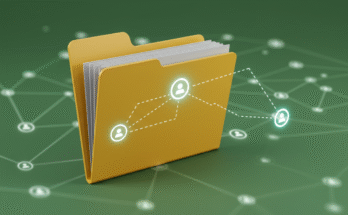In the ever-evolving world of blockchain and cryptocurrencies, smart contracts have emerged as a revolutionary tool. These self-executing contracts, with terms directly written into code, have transformed industries by enabling trustless and automated transactions.
However, with great power comes great responsibility. Enter the smart contract audit, a crucial process that ensures these digital agreements are secure, reliable, and error-free. If you’re new to the concept or wondering why smart contract audits are such a big deal, don’t worry! We’re here to break it all down in a simple, friendly way.
![[Smart Contract Audits] What They Are and Why They Matter](https://mineatech.com/wp-content/uploads/2025/06/smart-contract-audits-what-they-are-and-why-they-matter-1024x640.png)
What Exactly Is a Smart Contract Audit?
Think of a smart contract audit as a thorough health check for a piece of code. Developers write smart contracts to perform specific tasks, like transferring funds, managing assets, or executing agreements. But since these contracts often deal with sensitive data or large sums of money, any vulnerability in the code could lead to disastrous consequences like hacks or financial losses.
A smart contract audit is a systematic review of the code to identify bugs, vulnerabilities, or inefficiencies. It’s performed by experienced auditors or specialized firms who use both manual and automated tools to scrutinize every line of code. The goal? To ensure the contract behaves exactly as intended and is resistant to potential exploits.
Why Do Smart Contract Audits Matter?
You might be wondering, “Isn’t the developer’s job to write secure code?” Well, yes, but even the most skilled developers can make mistakes. Here’s why audits are so important:
1. Security First
Smart contracts often hold or manage significant amounts of cryptocurrency. Any flaw in the code could be exploited by hackers, leading to stolen funds or compromised systems. A rigorous audit helps identify and fix vulnerabilities before they can be exploited.
2. Building Trust
For projects involving public users or investors, trust is everything. A certified audit report shows that the developers are serious about security and have taken steps to protect their users’ assets.
3. Preventing Costly Mistakes
History has shown us that even minor coding errors can lead to catastrophic consequences. For example, in 2016, a vulnerability in The DAO’s smart contract led to the loss of $60 million worth of Ether. Audits help catch these errors early.
4. Compliance with Standards
As blockchain technology gains mainstream adoption, regulatory bodies are paying closer attention. A smart contract audit can help ensure your project complies with industry standards and best practices.
5. Enhancing Performance
Beyond security, audits can also identify ways to optimize the code for better performance and lower gas fees (the transaction costs on blockchain networks like Ethereum).
How Does a Smart Contract Audit Work?
→ The process might sound complex, but it typically follows these steps:
- Initial Assessment: The auditors review the project’s goals and requirements to understand what the smart contract is supposed to do.
- Manual Code Review: Experts go through the code line by line, looking for logical errors, vulnerabilities, and potential exploits.
- Automated Analysis: Specialized tools are used to scan the code for known issues, such as reentrancy attacks or integer overflows.
- Testing: The auditors simulate different scenarios to see how the contract behaves under various conditions. This includes stress testing and edge case analysis.
- Report Generation: Once the audit is complete, the findings are compiled into a detailed report. This includes identified vulnerabilities, their severity levels, and recommended fixes.
- Fixes and Re-audit: The developers address the issues highlighted in the report, and the auditors may perform a follow-up review to ensure all problems have been resolved.
Who Needs a Smart Contract Audit?
→ The short answer: anyone deploying a smart contract on a blockchain! But here are some specific cases where audits are especially critical:
- DeFi Projects: Decentralized finance platforms often handle millions (or even billions) of dollars in user funds.
- NFT Marketplaces: Smart contracts play a key role in minting and trading NFTs.
- Token Launches: When launching a new cryptocurrency token, an audit reassures investors that their funds are safe.
- Decentralized Applications (DApps): Any application running on a blockchain benefits from secure and efficient smart contracts.
Choosing the Right Auditors
→ Not all audits are created equal! When selecting an auditor or firm, look for:
- Reputation: Check reviews, testimonials, and past projects.
- Experience: Ensure they have expertise in your specific blockchain platform (e.g., Ethereum, Binance Smart Chain, Solana).
- Transparency: A good auditor will provide a clear and detailed report.
- Tools & Techniques: They should use both manual and automated methods for thorough analysis.
Some well-known auditing firms include CertiK, Quantstamp, ConsenSys Diligence, and Trail of Bits.
Conclusion
Smart contracts are an incredible innovation that’s reshaping how we think about trust and transactions. But like any technology, they come with risks and that’s where audits make all the difference. Whether you’re a developer launching your first project or an investor exploring new opportunities, understanding the importance of audits can save you from headaches down the road. So next time you hear about a project undergoing a smart contract audit, give it a thumbs up. It’s a sign that they’re taking security seriously and that’s something we can all appreciate in this fast-paced digital world.



